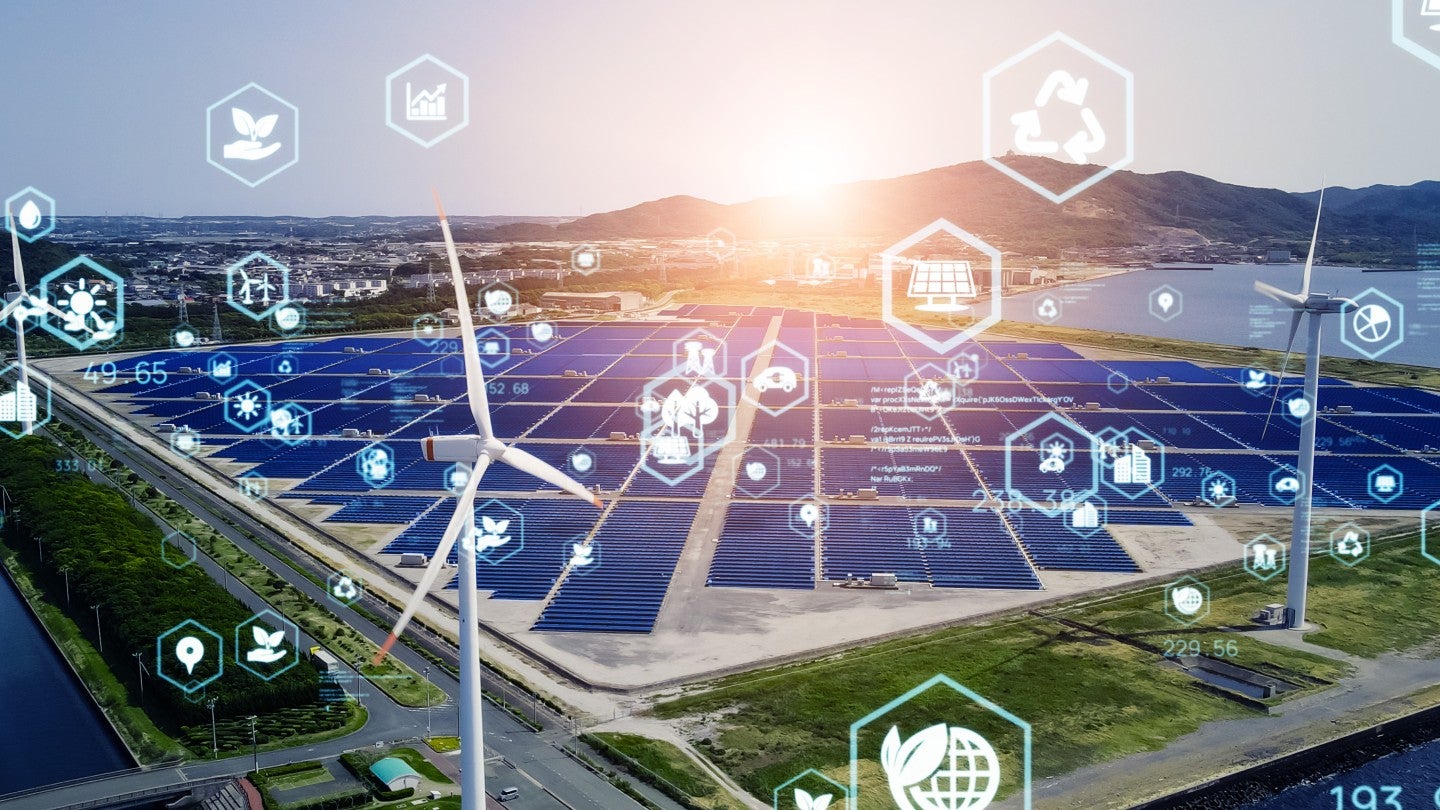
The integration of artificial intelligence (AI) and blockchain technology has the potential to revolutionize the energy industry and bring smart grids closer to providing and monitoring renewable energy solutions. This is according to a new report from GlobalData, the parent company of Energy Monitor.
Smart grids are electrical grids that use digital technology to monitor and transmit real-time information about demand and supply. The development and proliferation of these networks are significant for the generation and provision of renewable power. The report, entitled “Thematic Research: Smart Grid in Power”, highlights the benefits and threats of incorporating automation, blockchain, and AI into smart grids.
The use of AI in smart grids can have several applications, such as analyzing large amounts of data to calculate energy demand, renewable energy output, prices, and storage optimization. AI can also be used to monitor and diagnose system problems, avert blackouts, and match supply and demand from renewable energy sources like solar and wind. Nvidia, for example, has developed smart grid chips powered by its AI platform that can be integrated into smart meters to improve grid resilience.
Blockchain technology also has the potential to revolutionize the electricity industry by enabling peer-to-peer energy trading. Companies like Iberdrola in Spain have started piloting projects using blockchain to guarantee in real time that the electricity being produced and consumed is completely renewable. This allows customers to sign up for 100% clean electricity that is directly traceable to the source, fostering a culture of accountability within the energy sector.
The report emphasizes the importance of renewable integration as a key theme and focus for smart grids. With advancing smart grid technology, the deployment of renewable energy sources like wind, solar power, and hydrogen can become more common. This not only helps countries meet their sustainability goals but also provides customers with more information about the type of energy they are consuming and real-time prices.
However, with the advancements in smart grid technology come increased risks. The report highlights the growing frequency of cyberattacks in the power sector, citing incidents in Ukraine, India, and elsewhere. These cyberattacks have resulted in blackouts, client information leaks, and disabled remote controls for wind farms. Cybersecurity resilience is becoming an urgent issue that policymakers, regulators, and utility companies need to address. It is crucial that companies report any cybersecurity incidents so that necessary measures can be taken to prevent future attacks.
In conclusion, the integration of AI and blockchain technology into smart grids offers numerous benefits for the energy industry. It enables better monitoring and provision of renewable energy, improves grid resilience, and fosters a culture of accountability. However, cybersecurity risks need to be addressed to ensure the safe and reliable operation of smart grids. With further advancements and proper risk mitigation, smart grids have the potential to transform the energy landscape and accelerate the transition to a sustainable future.






